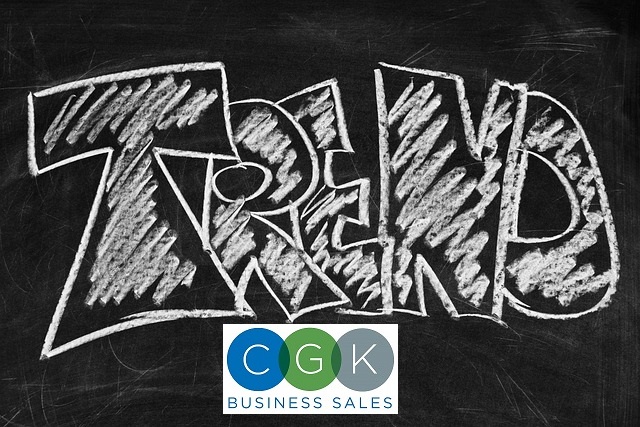Since 2020 small business owners have been on a wild ride caused by labor shortages, Covid surges, and supply chain issues. Many companies were hard hit, some were only mildly affected, and others prospered. These events have created new trends in the business world, prompting many owners to choose this time to sell. Professional guidance and an understanding of market trends can help owners sell their businesses and get a good price. Here are some trends when selling your business to think about before you start the process.
The Pandemic Affected Businesses
In 2020, when the Pandemic began impacting the U.S., millions of small businesses were still recovering from the Great Recession. Some companies survived but lost value as they struggled to adapt to a changing economy. The hospitality, restaurant, manufacturing, and retail industries were especially hard hit.
However, sectors like E-Commerce, tech, streaming entertainment services, and wireless communications thrived. Apps like Zoom thrived due to increased work-from-home employees, and online shopping flourished. These industries profited as millions of people altered their lifestyles to accommodate work/life changes.
With these trends in mind, thousands of small business owners have decided to sell their companies. Some sellers want to avoid dealing with business challenges, others plan to begin another business, and many look forward to retirement.
Owners may sell on their own or use a broker. But selling a business is a complex process that takes skill, so most owners find a trustworthy broker who can give them the best chance of success.
There’s a Market for Businesses in Thriving Industries
Business owners may sell to benefit from the demand for their industries. Many industries have experienced increased business as shifts in people’s necessities and hobbies created a need for specific services and products. Those companies are thriving and often drawing the attention of interested buyers. According to Small Business Trends, some of them are:
- Social media management
- Cleaning services
- Gas stations
- Graphic Design
- Digital Marketing
- App development
- Auto shops
- Web development
- Liquor stores
- Catering
- Real estate investment
- Virtual assistants
- Online tutoring
- Technology repair
- IT support
- Freelance writing
- Food trucks
- Property management
- Legal services
Sale Prices Are Escalating
Timing can impact how much a business sells for, and 2022 was a very good year for many sellers. Though, trends when selling your business can change, as inflation and interest rates rise. However, per business publication Inc., “The median sale price of small businesses grew 16% over the past year.” (From 2021 to 2022.)
Statistics show that buyers are currently paying premium prices for well-performing businesses. Pandemic-resistant establishments like health care businesses, liquor stores, e-commerce, gas stations, and auto shops are very popular.
The service sector is the best-selling, followed by restaurants and wholesale distributors. The most sought-after brick-and-mortar companies have a prime location and skilled, trained staff. There is also a market for businesses that are discounted due to poor financials, though this is a very difficult sale.
Business Ownership Is Trending
The Great Resignation beginning in 2021 is an economic trend responsible for over 47 million Americans voluntarily leaving their jobs. They cited reasons that included stagnant wages, limited career advancement, and inflexible work policies. Many of them left to buy businesses.
The U.S. Census Bureau reports that the number of entrepreneurs applying for business applications hit record numbers in 2021. Of the applicants, 21% stated they were part of the Great Resignation. The trend toward business ownership is expected to continue.
Baby Boomers Are Retiring
Members of the Baby Boomer generation, those born between 1946-1964, are retiring at an unprecedented rate, with 10,000 members turning 65 each day. Pew Research reports that almost 29 million Boomers retired in 2020, and 75 million are expected to leave the workforce by 2030.
Many long-time small business owners want to pass the torch to a new generation and are looking for buyers They are finding them, too, since their companies can be bargains. Many owners have Covid-related business issues and are tired of dealing with the complications. With many Boomers eager to retire, companies are often priced right.
Financial experts say there are a lot of small businesses that are 20 years or older with sales of less than $10 million. Although the current owners have done well, their companies are not big enough or growing quickly enough to be of interest to many private equity firms.
It’s a Seller’s Market
As of 2022, business owners still had a market advantage. The uncertainty caused by the pandemic resulted in many sellers taking a wait-and-see approach for a year or so. The result has been an imbalance caused by more buyer demand than available businesses.
The median price for businesses is expected to grow since buyers continue to pay premium prices. It’s a seller’s market, but one that business owners should jump on.
As the pandemic fades further into the past and more retirees sell businesses, the market will begin to balance. Companies are still going for record prices, and buyer demand remains high. Experts predict a surge of interest in re-opened companies such as travel, entertainment, and dine-in restaurants.
Businesses Are Opening Up Again
Now that millions of people worldwide are vaccinated against Covid, they are on the move again. The trend is creating more interest in buyers who want to get in on the increased business opportunities.
For example, there are reports that the demand for restaurants has increased as the economy has begun recovering from the Pandemic. Indoor and outdoor dining is popular, and many investors are searching for a possible restaurant to buy, primarily in highly trafficked areas. The demand for companies in the hospitality industry is also up because people are traveling again.
SBA Loans Can Often Help Buyers
The Small Business Administration (SBA) lending program makes it easier to buy a small business, which means sellers have more offers. Individuals can use an SBA 7(a) loan to help cover expenses in purchasing an existing business.
Purchasing an existing business allows new owners to begin work with customers, staff, and inventory in place. But it requires capital, and not everyone can get a personal or traditional small business loan. A loan backed by the SBA often makes it possible for more people to buy a business.
An SBA 7(a) loan is government-backed and provided by financial institutions such as credit unions and banks. Although the SBA doesn’t lend directly, they insure loans against the possibility that borrowers will default. An SBA 7(a) loan is attractive to lenders because it minimizes risk. The loans are often used to buy businesses. Trends when selling your business are an important aspect for sellers to examine before going to market with their business.


